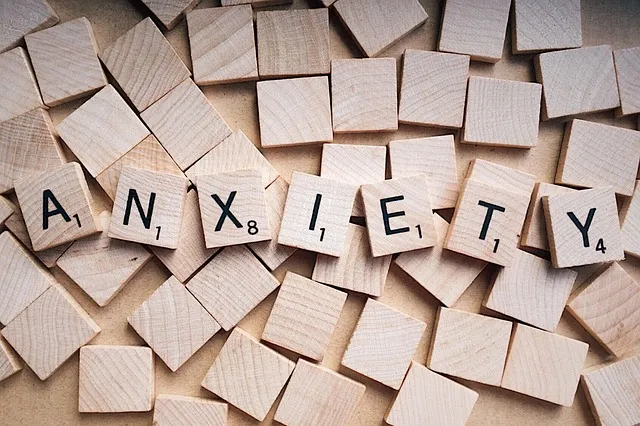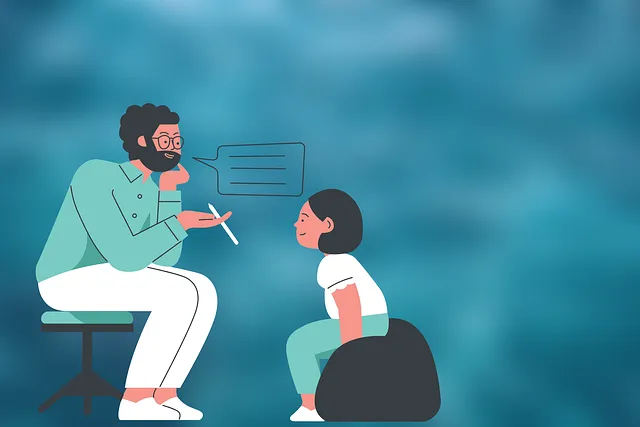Mental wellness group facilitation at Lakewood Kaiser Permanente mental health center during visiting hours focuses on creating safe, supportive spaces led by skilled facilitators using therapeutic techniques and effective communication. These leaders guide conversations, crisis interventions, and stress management workshops, encouraging participants to share coping strategies, build resilience, and improve overall well-being. Cultural competency training ensures tailored approaches for diverse backgrounds, overcoming language barriers, and addressing unique community challenges. Active listening and clear communication build trust, fostering an inclusive environment where everyone feels valued and heard. Data-driven evaluation and burnout prevention strategies further optimize therapeutic outcomes, with accessibility information available on the Lakewood Kaiser Permanente mental health center website.
Mental wellness group facilitation plays a pivotal role in supporting individuals navigating various challenges. This article explores effective techniques tailored specifically for facilitators at Lakewood Kaiser Permanente, a renowned mental health center known for its comprehensive care. We delve into creating safe spaces, mastering communication strategies, and measuring the impact of group sessions. By understanding these methods, leaders can enhance participant experiences, fostering resilience and recovery within this supportive environment during visiting hours.
- Understanding Mental Wellness Group Facilitation
- Creating a Safe and Supportive Environment
- Effective Communication Strategies for Group Leaders
- Measuring and Enhancing Group Session Impact at Lakewood Kaiser Permanente
Understanding Mental Wellness Group Facilitation

Mental wellness group facilitation is a specialized skill that involves leading and supporting a group of individuals working through collective and individual mental health challenges. It’s an art that requires a deep understanding of various therapeutic techniques, effective communication, and the ability to create a safe, inclusive space for all participants. Facilitators play a crucial role in guiding conversations, encouraging active engagement, and fostering a sense of community within the group setting.
At Lakewood Kaiser Permanente mental health center visiting hours, these techniques are often employed in Stress Management Workshops Organization and Crisis Intervention Guidance sessions. The goal is to enhance mental wellness by promoting peer support, sharing coping strategies, and building resilience. Through skilled facilitation, groups can navigate complex emotions, break down barriers, and ultimately contribute to improved overall well-being, making it a valuable resource for many individuals seeking support.
Creating a Safe and Supportive Environment

Creating a safe and supportive environment is paramount when facilitating mental wellness groups, especially at a Lakewood Kaiser Permanente mental health center during visiting hours. This involves fostering an atmosphere where participants feel comfortable sharing their experiences without fear of judgment or stigma. Group facilitators should encourage active listening among members, ensuring everyone has the opportunity to express themselves openly. Techniques such as reflective listening and empathy can help build resilience by validating individual feelings and perspectives.
Cultural competency training for healthcare providers is crucial in this context. Understanding the diverse backgrounds and beliefs of group participants allows facilitators to tailor their approach effectively. This includes being mindful of language barriers, cultural norms related to mental health, and unique community challenges. By creating an inclusive space that respects and embraces these differences, facilitators can enhance crisis intervention guidance, ultimately promoting better outcomes for all members within the group setting.
Effective Communication Strategies for Group Leaders

Effective communication is a cornerstone for group facilitation, especially at the Lakewood Kaiser Permanente mental health center visiting hours. Group leaders must employ strategies that foster open and honest dialogue. Active listening, where facilitators demonstrate undivided attention and understanding, builds trust among members. This technique encourages participants to express their thoughts and feelings without fear of judgment. Additionally, clear and concise language helps prevent misunderstandings and promotes a safe space for sharing.
Incorporating Social Skills Training and Mindfulness Meditation can further enhance communication within the group. Teaching individuals how to recognize and manage non-verbal cues allows for better understanding of others’ perspectives. Community Outreach Program Implementation initiatives that focus on improving communication skills can create an inclusive environment, where everyone feels valued and heard. These techniques collectively contribute to a supportive atmosphere, essential for mental wellness discussions and progress.
Measuring and Enhancing Group Session Impact at Lakewood Kaiser Permanente

At Lakewood Kaiser Permanente mental health center, measuring the impact of group sessions is a key aspect of enhancing therapeutic outcomes. By employing structured assessment tools and collecting feedback from participants, facilitators can gauge the effectiveness of various techniques such as conflict resolution practices and compassion cultivation. This data-driven approach allows for continuous improvement and refinement of the program, ensuring that each session aligns with the evolving needs of the group.
Moreover, integrating burnout prevention strategies for healthcare providers is an integral part of these sessions. By facilitating open discussions on stress management and self-care, Lakewood Kaiser Permanente aims to support mental health professionals in their personal well-being. This holistic approach not only benefits the facilitators but also enriches the overall experience for participants, fostering a supportive and nurturing environment conducive to healing and growth.
Mental wellness group facilitation plays a pivotal role in supportive environments, fostering open communication, and enhancing well-being. As demonstrated by Lakewood Kaiser Permanente’s successful session impact measurements, creating a safe space where individuals can share their experiences is transformative. By adopting effective communication strategies and tailored techniques, group leaders at this leading mental health center, with its convenient visiting hours, empower participants to navigate challenges and cultivate resilience. This holistic approach not only improves individual outcomes but also contributes to a vibrant community where mental wellness is prioritized and supported.






